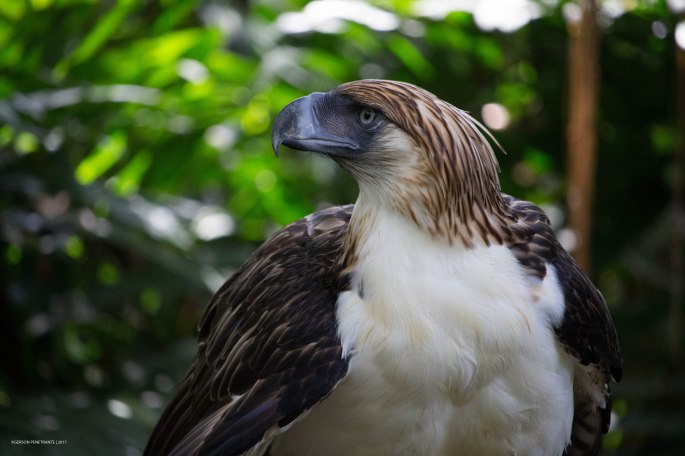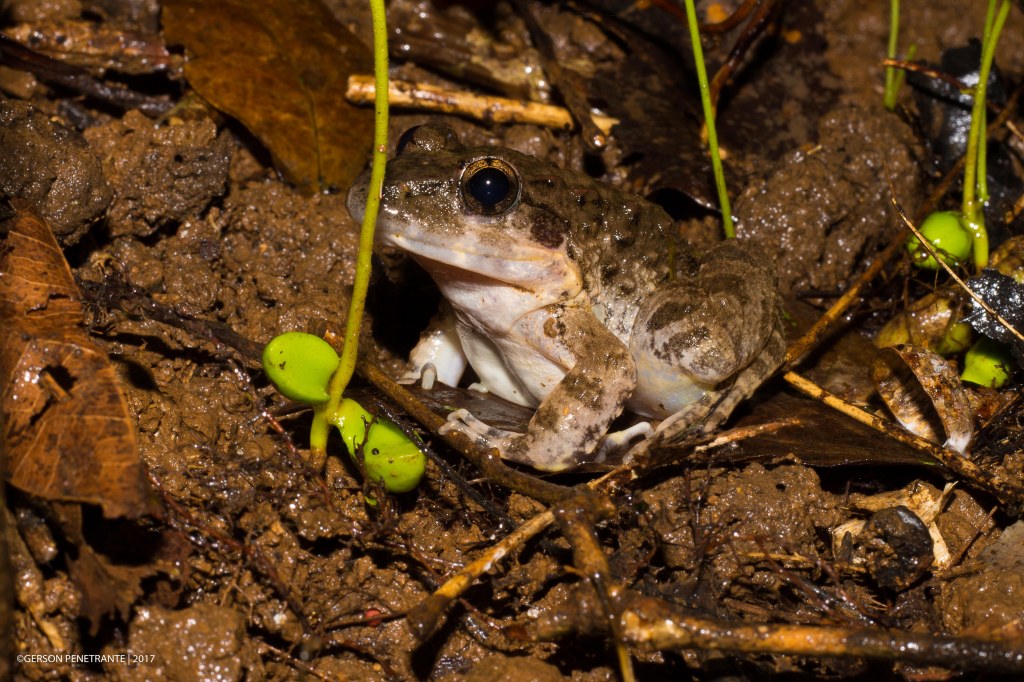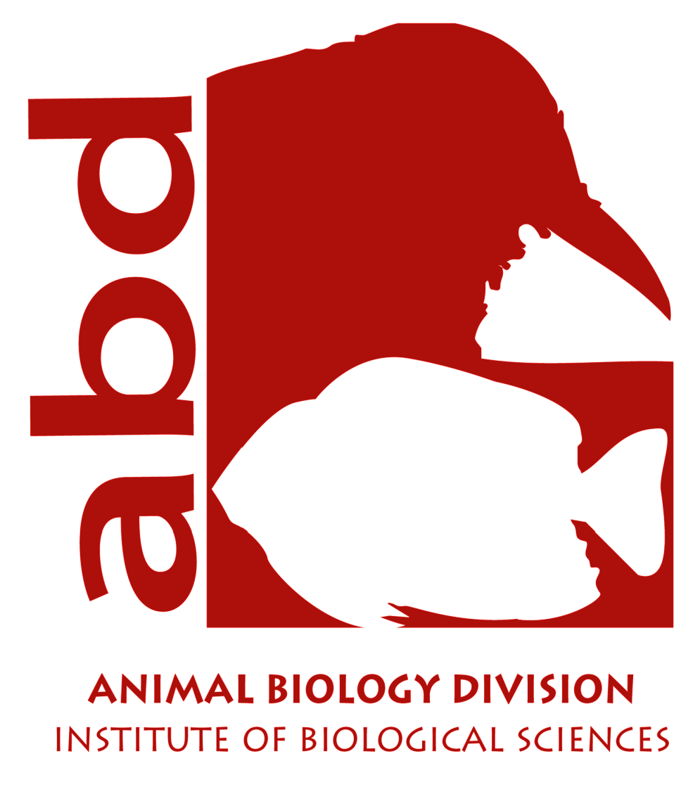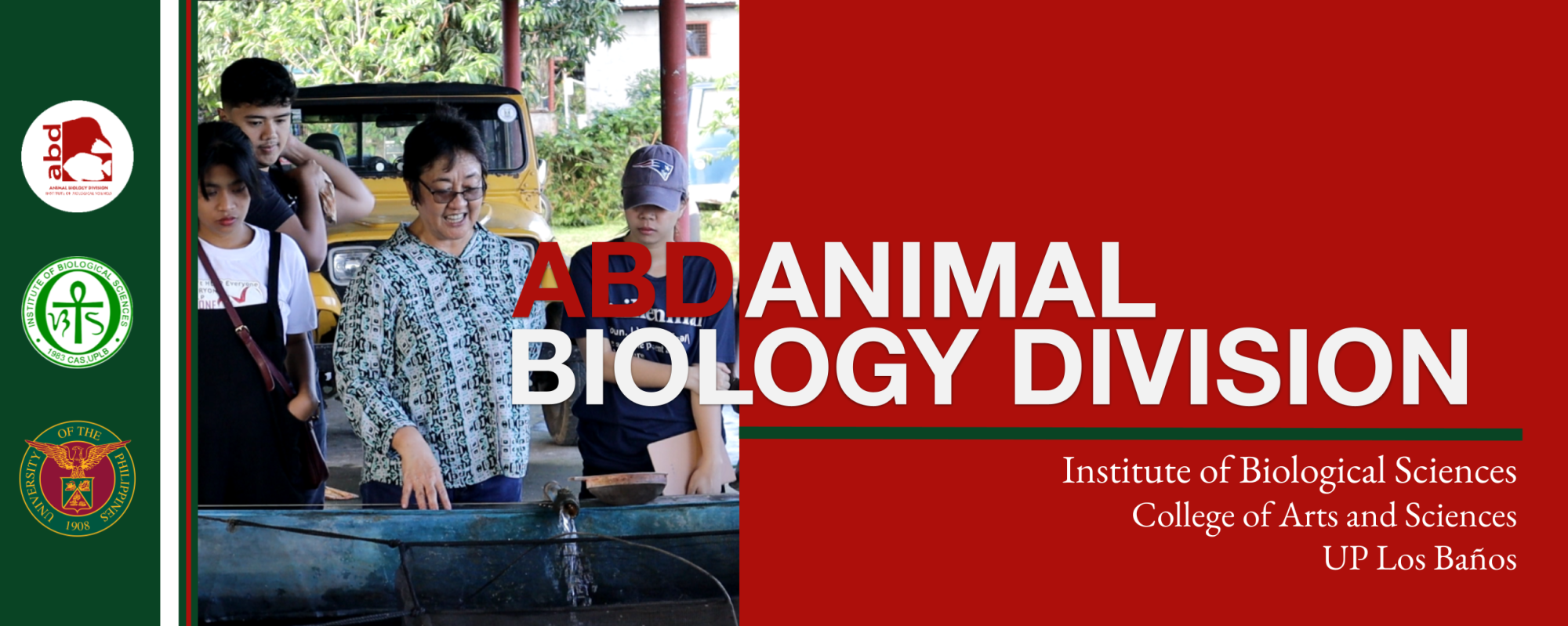Graduate Programs Options

- Master of Science in Zoology
- Master of Science in Wildlife Science (a joint program with College of Forestry and Natural Resources)
- PhD by Research in Wildlife Science
- PhD by Research in Zoology
Other Graduate Programs with ABD staff as Affiliate faculty
- Master of Science in Molecular Biology and Biotechnology
- Master of Science in Environmental Science
- Doctor of Philosophy in Molecular Biology and Biotechnology
- Doctor of Philosophy in Environmental Science
Link to Graduate School website for details of the graduate programs
Master of Science in Wildlife Science
M.Sc. Wildlife Science is a joint program of the Institute of Biological Sciences of the College of Arts and Sciences (CAS), and the Forest Biological Sciences of the College of Forestry and Natural Resources (CFNR). This unique program provides students with the knowledge and skills to conduct research on wildlife biology, their conservation and management, with emphasis on Philippine taxa. Wildlife studies focuses on field techniques for identification and estimation of wild populations of amphibians, reptiles, birds and mammals, to develop strategies for conserving threatened species and their habitats. A third collaboration with the College of Veterinary Medicine (CVM) contributes to research in wildlife medicine.
The program currently covers three important areas of specialization, namely Wildlife Biology, Wildlife Management and Wildlife conservation. Research on these areas apply to other related fields of study including vertebrate pests, reproductive physiology, parasitology, protected areas management, molecular phylogenetics, biogeography, population dynamics, conservation biology and wildlife ecology.

This program can be completed in 2-3 years (full time), upon satisfying the total 30 credit units, submission of a thesis and passing the comprehensive exam. A minimum of 24 units of course work is required, with at least 18 units taken are above the 200 level. Collectively, one unit of seminar (WLDL 299) and six units of thesis (WLDL 300) completes the program requirements. Apparently, only four graduate courses (16 units) are available, and the remaining 200-level courses can be taken from associated courses in Zoology, Botany, Ecology, Forestry, Molecular Biology and Environmental Science.
For details on general admission for prospective students and application to the M.Sc. Wildlife Studies Graduate Program, please refer to the Link to Admissions of the UPLB Graduate School. Visit our Faculty page to look for prospective advisers.
Please refer to our MS Wildlife Science brochure for an overview of our program and courses offered.
Master of Science in Zoology
M.Sc. Zoology is a graduate program is designed to develop the ability of students to undertake critical inquiry and independent research for the advancement of knowledge in animal biology, as well as develop professional leadership in the biological sciences. This program is unique to UPLB and is mainly offered by the ABD of the Institute of Biological Sciences (IBS). It is no longer offered by other UP campuses including UP Diliman and UP Manila, and ceased to persist in other universities previously known to have offered a M.Sc. Zoology, including Mindanao State University and University of Sto Tomas. It appears, the UPLB Zoology program is the sole remaining graduate program for zoology in the entire Philippines, where it continues to be viable and progressive.

Historical accounts indicated that an Applied Zoology program was initially offered as an area of specialization under the UPLB graduate program in Entomology. However, the Department of Zoology was formaly establishment on December 1972. A year later in October, the M.Sc. in Zoology program was formally approved by UPLB, which started with two areas of specialization, namely Vertebrate Pest and Phytonematology. The program expanded the two original areas into eight specific fields, adding Physiology, Parasitology, Limnology, Wildlife Biology, Invertebrate and Vertebrate Zoology. These eight areas incorporated both basic and applied aspects of Zoology.
Thirty years after the establishment of the IBS in 1983, which absorbed the former Department of Zoology, the re-established ABD now has 15 active graduate faculty members (10 doctoral and 5 master’s degree holders). ABD continues to promote faculty development to help strengthen its graduate program, with six faculty currently pursuing doctoral degrees.
The current Zoology program provides a flexible curriculum that would emphasize the student’s interest in any of the emerging fields of study in animal biology, such as biomedical & health sciences, aquatic ecology, and terrestrial ecology & conservation. Overall, these added fields fall within four distinct Areas of Specialization in Zoology, namely (1) Animal Ecology, (2) Parasitology, (3) Invertebrate Zoology and (4) Animal Physiology. The requirements to graduate for the M.Sc. Zoology program follow the standards set by the graduate school for Master of Science programs, completing 30 credit units.
For details on general admission for prospective students and application to the M.Sc. Zoology Graduate Program, please refer to the Link to Admissions to the UPLB Graduate School. Visit our Faculty page to look for prospective advisers.
Please refer to our MS Zoology brochure for an overview of our program and a list of courses offered.
Doctor of Philosophy by Research in Wildlife Science
The PhD by Research in Wildlife Science program provides a real time research platform for qualified students to use advanced research methods, state-of-the-art research facilities, as they conduct relevant research needed in their working institutions. They will be ushered to funding agencies for financial support and will be mentored through collaborative approaches that will address the multidisciplinary requirements of effective conservation and sustainability. Prospective students should contact first a potential supervisor from the Animal Biology Division faculty before applying.
Applicants to the program must have the following qualifications and requirements:
- a Master’s degree (with thesis) from a recognized institution in a field related to the intended PhD research of the applicant;
- at least 1 refereed publication within the last 5 years as lead, senior or sole author, in a reputable scientific journal;
- at least 3 years work experience in the related field;
- at least a GWA of 1.75 or better for the Master’s degree;
- provisional acceptance from a prospective research supervisor;
- a capsule proposal for the intended research dissertation (at least three to five pages);
- undergo and pass the assessment process conducted by the evaluation committee of the Animal Biology Division
For more details about the application process, please refer to the Link to the Graduate School.
Doctor of Philosophy by Research in Zoology
The PhD by Research in Zoology is a newly instituted program for students who want to pursue their desired fields of interest using advanced research methods, state-of-the-art research facilities, and strong financial support from funding agencies. In this program, students are expected to conduct their own research with the guidance of their research supervisor. Among the potential fields of specialization include parasitology, marine biology, freshwater ecology, vertebrate physiology, and invertebrate biology. Prospective students should contact first a potential supervisor from the Animal Biology Division faculty before applying.
Applicants to the program must have the following qualifications and requirements:
- a Master’s degree (with thesis) from a recognized institution in a field related to the intended PhD research of the applicant;
- at least 1 refereed publication within the last 5 years as lead, senior or sole author, in a reputable scientific journal;
- at least 3 years work experience in the related field;
- at least a GWA of 1.75 or better for the Master’s degree;
- provisional acceptance from a prospective research supervisor;
- a capsule proposal for the intended research dissertation (at least three to five pages);
- undergo and pass the assessment process conducted by the evaluation committee of the Animal Biology Division
For more details about the application process, please refer to the Link to the Graduate School.


You must be logged in to post a comment.